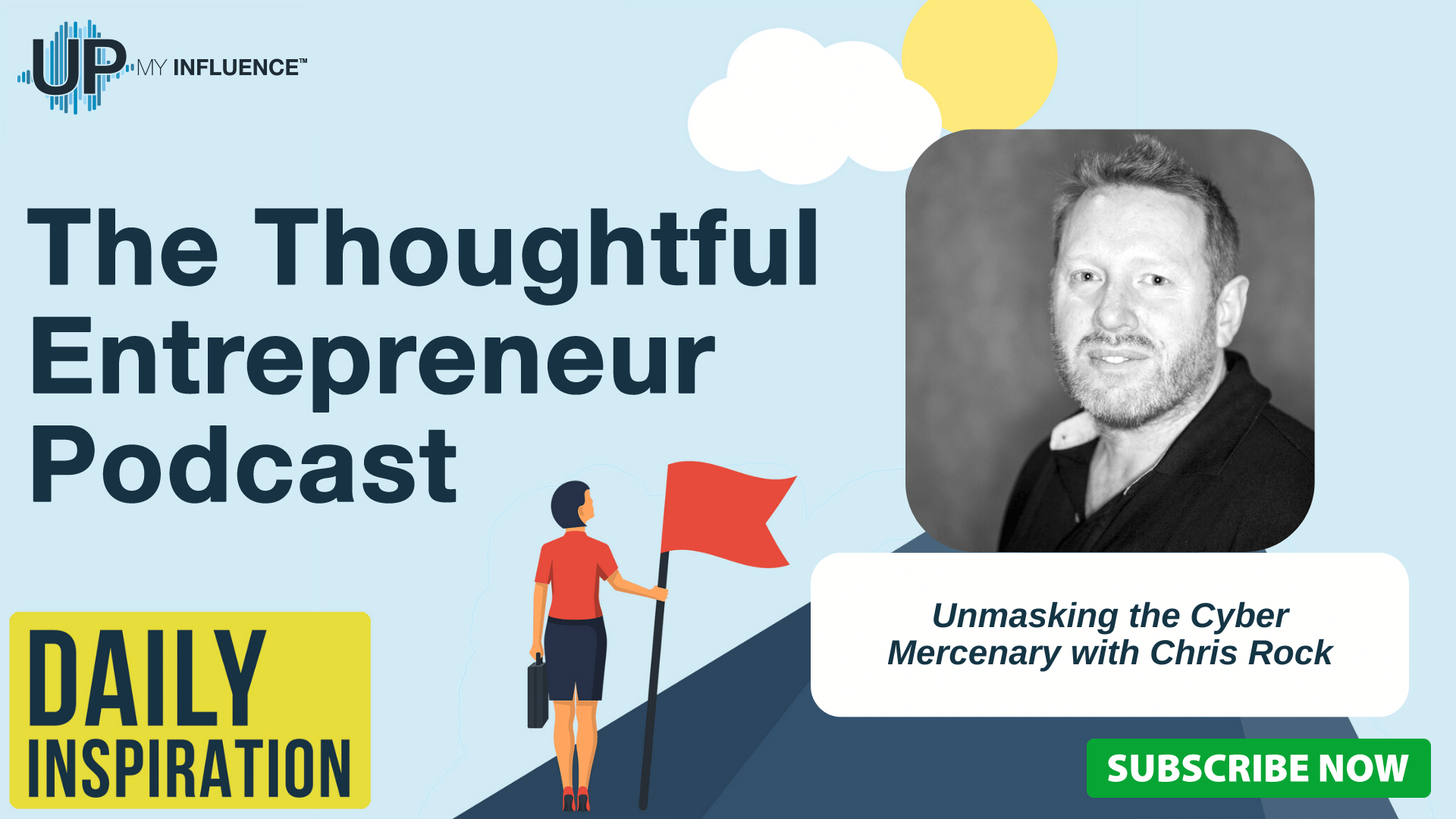THE THOUGHTFUL ENTREPRENEUR PODCAST
In this episode of the Thoughtful Entrepreneur, your host Josh Elledge speaks to the Chief Information Security Officer Co-Founder of SIE Monster, Chris Rock.

Chris Rock is not your typical CSO. He's a hacker by trade with a dual role that involves finding system flaws and presenting them at conferences like Defcon.
Simultaneously, he serves as the CEO of SIEMonster, which provides security services for large enterprises. His clients range from governments to private organizations, each with unique objectives and security needs.
Chris shared some intriguing stories from his work. He's uncovered employees setting up illegal activities within companies, helped track people escaping authorities in the Middle East, and dealt with a myriad of other complex situations. These stories, while fascinating, also highlight the darker side of our increasingly digital world.
When asked Chris if there was any hope for a safer digital world, his response was sobering. The flaws he identified years ago still exist today, and the transition from paper-based systems to electronic systems has only increased the potential for security breaches.
He also recommended using account IDs and virtual credit cards instead of traditional credit card numbers to further enhance security.
Key Points from the Episode:
- Introduction of Chris Rock as CSO of Sea Monster and cyber mercenary
- Chris's work as a hacker and consultant
- Clients and objectives of Chris's work
- Stories and insights into vulnerabilities of systems
- Need for increased security measures
- Use of tokens instead of passwords for account security
- Risks of using passwords and benefits of tokens
- Importance of VPNs for data protection
- Choosing a reliable VPN provider
- Importance of encryption and protecting personal information
About Chris Rock:
As the Chief Information Security Officer and co-founder of SIEMonster, Chris has traversed the cyber landscapes of the Middle East, the United States, and Asia, lending his expertise to governmental and private entities.
Renowned for his presentations at DEFCON, the world's largest hacking conference in Las Vegas, Chris has delved into contentious vulnerabilities.
His talks covered topics such as the potential manipulation of Birth and Death Registration systems, the collaboration of cyber mercenaries in government overthrows, and innovative methods of bypassing jammers by utilizing the Earth as an antenna.
As a thought leader, he authored “Baby Harvest,” a compelling exploration of criminals and terrorists exploiting virtual babies and fabricated deaths for financial gain. Notably, Rock has graced the TED Global stage, further solidifying his status as a cybersecurity luminary.
About SIEMonster:
SIEMonster, established in 2015, is an innovative and cost-effective Security Information and Event Management (SIEM) solution. Founded by experienced hackers Chris and Dez Rock, the platform emerged from a recognized gap in the SIEM market.
With over 20 years of penetration testing and white-hat hacking expertise, the founders and their team crafted a scalable and customizable SIEM tool. SIEMonster's pricing model doesn't penalize based on Events Per Second (EPS), offering affordability and automatic scalability as clients expand.
SIEMonster incorporates automated tasks and data enrichment, reducing the reliance on external security consultants.
The vision, shared by Chris and Lead Solutions Designer Jim Bycroft, focuses on constant evolution and scalability, positioning SIEMonster as a leader in the dynamic cybersecurity landscape.
The platform's commitment to forward-thinking security solutions makes it a formidable choice for organizations seeking robust defense against evolving threats.
Apply to be a Guest on The Thoughtful Entrepreneur:
https://go.upmyinfluence.com/podcast-guest
Links Mentioned in this Episode:
Want to learn more? Check out SIEMonster website at
Check out SIEMonster on LinkedIn at
https://www.linkedin.com/company/siemonster/
Check out SIEMonster on Twitter at
https://twitter.com/_SIEMonster
Check out Chris Rock on LinkedIn at
https://www.linkedin.com/in/chris-rock-siemonster/
Check out Chris Rock on Twitter at
https://twitter.com/chrisrockhacker
Don’t forget to subscribe to The Thoughtful Entrepreneur and thank you for listening. Tune in next time!
More from UpMyInfluence:
We are actively booking guests for our The Thoughtful Entrepreneur. Schedule HERE.
Are you a 6-figure consultant? I’ve got high-level intros for you. Learn more here.
What is your #1 Lead Generation BLOCKER? Take my free quiz here.
Want to learn more about all the podcasts managed by UpMyInfluence? Opt in here.

